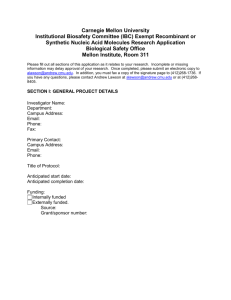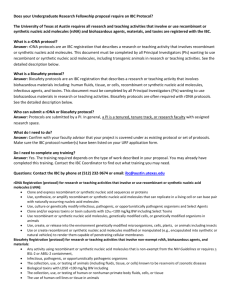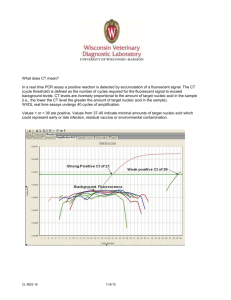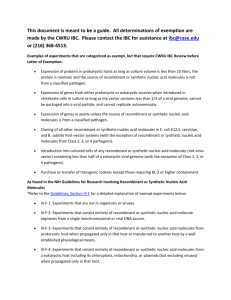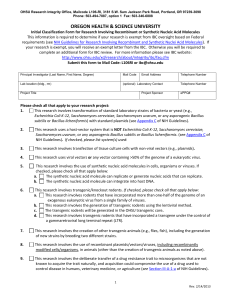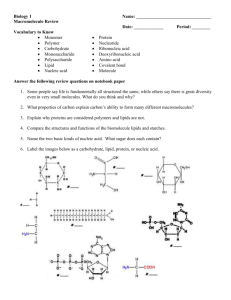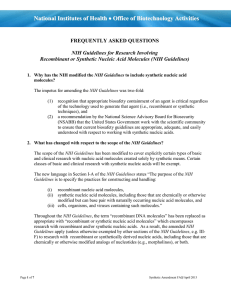Recombinant or Synthetic Nucleic Acid Work
advertisement
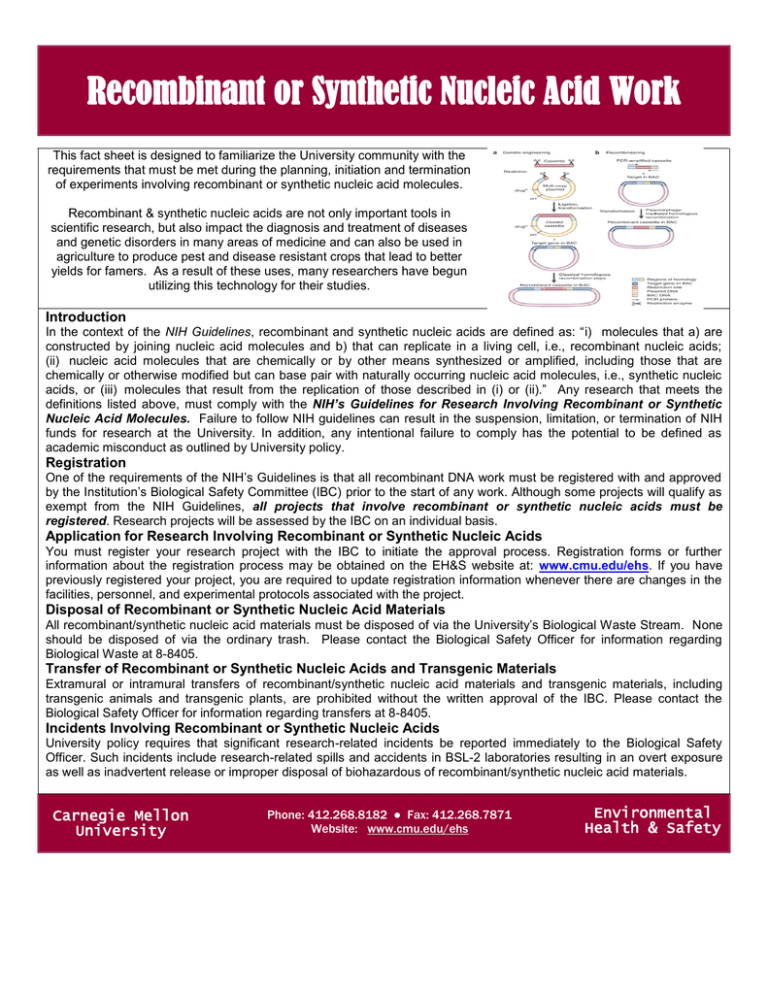
Recombinant or Synthetic Nucleic Acid Work This fact sheet is designed to familiarize the University community with the requirements that must be met during the planning, initiation and termination of experiments involving recombinant or synthetic nucleic acid molecules. Recombinant & synthetic nucleic acids are not only important tools in scientific research, but also impact the diagnosis and treatment of diseases and genetic disorders in many areas of medicine and can also be used in agriculture to produce pest and disease resistant crops that lead to better yields for famers. As a result of these uses, many researchers have begun utilizing this technology for their studies. Introduction In the context of the NIH Guidelines, recombinant and synthetic nucleic acids are defined as: “i) molecules that a) are constructed by joining nucleic acid molecules and b) that can replicate in a living cell, i.e., recombinant nucleic acids; (ii) nucleic acid molecules that are chemically or by other means synthesized or amplified, including those that are chemically or otherwise modified but can base pair with naturally occurring nucleic acid molecules, i.e., synthetic nucleic acids, or (iii) molecules that result from the replication of those described in (i) or (ii).” Any research that meets the definitions listed above, must comply with the NIH’s Guidelines for Research Involving Recombinant or Synthetic Nucleic Acid Molecules. Failure to follow NIH guidelines can result in the suspension, limitation, or termination of NIH funds for research at the University. In addition, any intentional failure to comply has the potential to be defined as academic misconduct as outlined by University policy. Registration One of the requirements of the NIH’s Guidelines is that all recombinant DNA work must be registered with and approved by the Institution’s Biological Safety Committee (IBC) prior to the start of any work. Although some projects will qualify as exempt from the NIH Guidelines, all projects that involve recombinant or synthetic nucleic acids must be registered. Research projects will be assessed by the IBC on an individual basis. Application for Research Involving Recombinant or Synthetic Nucleic Acids You must register your research project with the IBC to initiate the approval process. Registration forms or further information about the registration process may be obtained on the EH&S website at: www.cmu.edu/ehs. If you have previously registered your project, you are required to update registration information whenever there are changes in the facilities, personnel, and experimental protocols associated with the project. Disposal of Recombinant or Synthetic Nucleic Acid Materials All recombinant/synthetic nucleic acid materials must be disposed of via the University’s Biological Waste Stream. None should be disposed of via the ordinary trash. Please contact the Biological Safety Officer for information regarding Biological Waste at 8-8405. Transfer of Recombinant or Synthetic Nucleic Acids and Transgenic Materials Extramural or intramural transfers of recombinant/synthetic nucleic acid materials and transgenic materials, including transgenic animals and transgenic plants, are prohibited without the written approval of the IBC. Please contact the Biological Safety Officer for information regarding transfers at 8-8405. Incidents Involving Recombinant or Synthetic Nucleic Acids University policy requires that significant research-related incidents be reported immediately to the Biological Safety Officer. Such incidents include research-related spills and accidents in BSL-2 laboratories resulting in an overt exposure as well as inadvertent release or improper disposal of biohazardous of recombinant/synthetic nucleic acid materials. Carnegie Mellon University Phone: 412.268.8182 ● Fax: 412.268.7871 Website: www.cmu.edu/ehs Environmental Health & Safety

